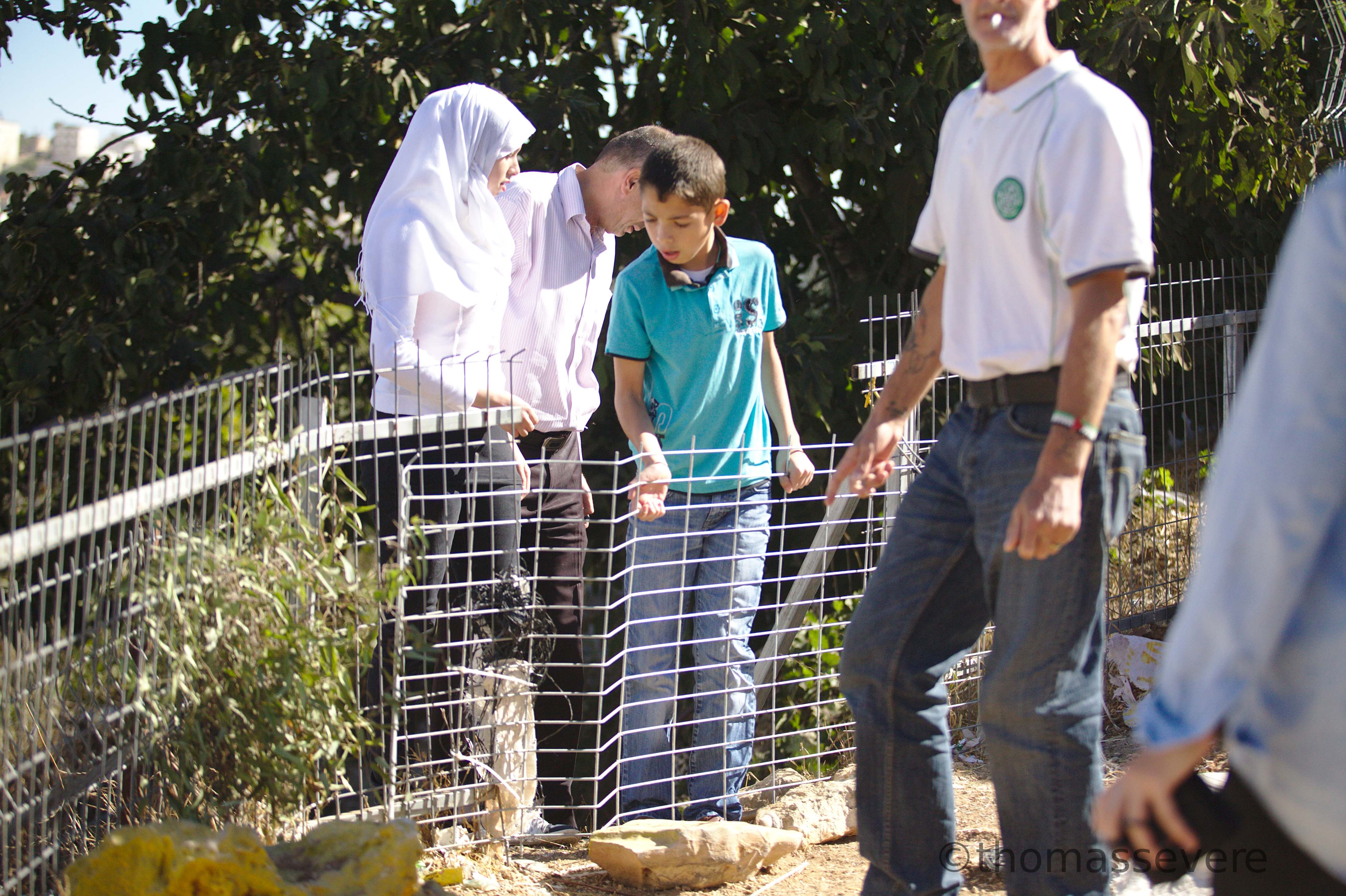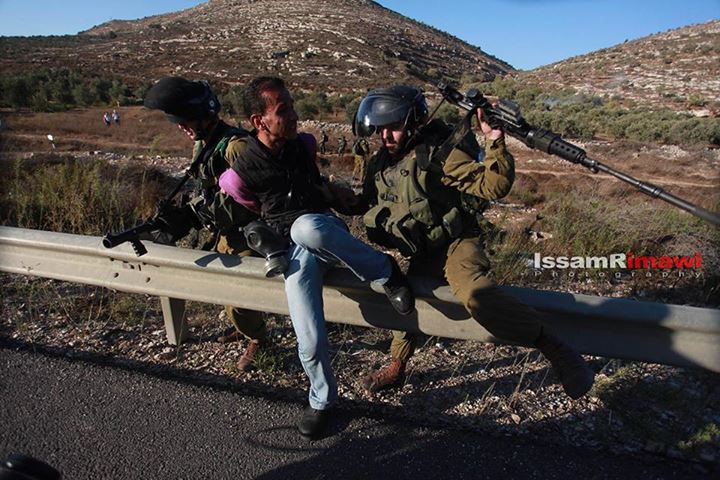Tag: Arrests
-
Updated: Continued settler harassment and international arrested in Hebron
13th October 2013 | International Solidarity Movement, Khalil Team | Hebron, Occupied Palestine One international was arrested after settlers fenced off the Asseh family home for a second day in a row in Hebron’s Tel Rumeida area. Yesterday, early Saturday morning, settlers tied a fence across the exit of the Asseh family home with a…
-
Dozens injured and hundreds of arrests in intense Hebron clashes
23rd September 2013 | International Solidarity Movement, Khalil Team | Hebron, Occupied Palestine On Sunday 22nd September, heavy clashes took place across Hebron, leading to the injury and arrest of numerous Palestinians as well as the death of an Israeli soldier. Hebron is currently declared a military zone with a curfew imposed and all entrances to…
-
Updated: Three Palestinian activists arrested during demonstration against road closure in Qaryut
10th September 2013 | International Solidarity Movement, Ramallah Team | Qaryut, Occupied West Bank Update 11th September: Abdallah Abu Rahmah was released at around 10pm last night. Bashar Qaryouti and Salah al-Khawaja have also been released. Bashar has needed medical attention after being beaten during his arrest. ******* Three Palestinian activists have been arrested today related…


